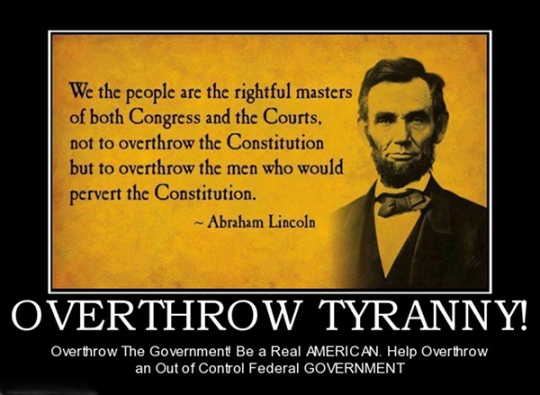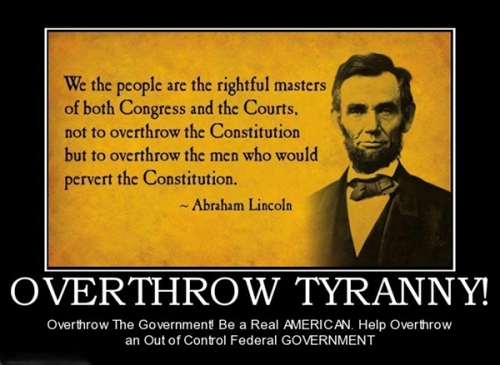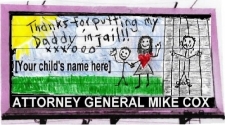The Homeless Dads: The Bad Deal Divorce
John McElhenney still tries to see the balance in his divorce decree. But after losing everything twice, he’s convinced we men need to fight for equal consideration after the marriage has ended.
 The typical divorce is actually pretty painful. The standard DEAL is almost an assault to fatherhood, and we need to fight to change it. In the most common arrangement, Mom gets the kids and house, dad gets the child support payment. It’s how things used to work. But today, unfortunately, the courts still go by this structure unless there is significant fight to something difference.
The typical divorce is actually pretty painful. The standard DEAL is almost an assault to fatherhood, and we need to fight to change it. In the most common arrangement, Mom gets the kids and house, dad gets the child support payment. It’s how things used to work. But today, unfortunately, the courts still go by this structure unless there is significant fight to something difference.
There are a few problems with this pattern.
 The non-custodial parent is assumed to be a deadbeat when they are calling the AG’s office. You are segmented into custodial or non-custodial parent at the beginning. If you are the non-custodial parent the only reason you’d be calling is you are behind on your child support.
The non-custodial parent is assumed to be a deadbeat when they are calling the AG’s office. You are segmented into custodial or non-custodial parent at the beginning. If you are the non-custodial parent the only reason you’d be calling is you are behind on your child support.
When we complain about unavailable dads, or dads that check-out after divorce, here are a few of the reasons why.
- The child support burden is a lot of money.
- Dads might be resentful of the “money only” role they are being put in.
- When dad is asked to leave the marital home they are often forced to move in with family members or friends, this is largely because of the cost of child support.
- In addition to $500+ per kid in child support (estimate) the dad is also asked to pay for health insurance. (Today, in my case this is an additional $1,200 per month with two kids.
 So let’s see, I’ve got no home. I’m paying $1,200 a month for child support and $1,200 a month for health care. How can I afford an apartment? If I don’t have a killer job ($2,400 after tax expenses before I get a dollar for myself or my survival. Well, that’s a pretty steep hill to climb.
So let’s see, I’ve got no home. I’m paying $1,200 a month for child support and $1,200 a month for health care. How can I afford an apartment? If I don’t have a killer job ($2,400 after tax expenses before I get a dollar for myself or my survival. Well, that’s a pretty steep hill to climb.
IF the playing field were equal, I would guess a lot more divorces would be negotiated in good faith. Today, even if you declare a collaborative divorce, the issue of money is liable to strike the dad in the pocketbook in a way the mom, to start out with, does not even have to consider. RARE is the case where the dad is given full custody and the mom pays child support.
Shouldn’t we start with 50/50 in both financial responsibility AND parenting time? This is the fight we are fighting in the courts today. I’m considering going back to court to reset the arrangement. I was attempting a collaborative divorce, but in the end I was handed this lopsided deal. I have to earn over $3,000 per month (taking taxes out BEFORE I pay the mom) before I have a chance at even putting food on the table.
 This leaves a lot of dads as deadbeats, not because they are actually trying to shirk their responsibility, but because the mom and the court have saddled them up with so much financial liability that they cannot afford to make the payments each month. At that point the dad is subject to financial liens, foreclosure, and checking account freezes.
This leaves a lot of dads as deadbeats, not because they are actually trying to shirk their responsibility, but because the mom and the court have saddled them up with so much financial liability that they cannot afford to make the payments each month. At that point the dad is subject to financial liens, foreclosure, and checking account freezes.
You know what happens when the AG’s office freezes your account?
- The bank charges you $57 – $150 for the freeze.
- The bank processes no further payments (rent, car payments, even your child support payments)
- You bounce checks.
- You’re credit get’s screwed.
- You end up with an additional $200 – $400 in fees.
And you know what the AG’s officer will tell you? (The Humans Of Divorce, Dear AG’s Office Special Cases Officer Mr. McK!)
 Fair treatment of fathers begins at the beginning of the relationship. BEFORE you have kids, you can agree to parent 50/50. If that’s the deal, you should have the discussion about if things don’t work out. (I’m not talking prenuptial, just an understanding) In my marriage we started out 50/50, but as soon as she decided she wanted a divorce (yes, it was her idea) the arrangement went to the cutting floor and I was handed the dad deal. A bad deal for everyone.
Fair treatment of fathers begins at the beginning of the relationship. BEFORE you have kids, you can agree to parent 50/50. If that’s the deal, you should have the discussion about if things don’t work out. (I’m not talking prenuptial, just an understanding) In my marriage we started out 50/50, but as soon as she decided she wanted a divorce (yes, it was her idea) the arrangement went to the cutting floor and I was handed the dad deal. A bad deal for everyone.
As the dad can’t afford a nice place for the kids to come visit, they want to come visit less. As mom’s house maintains some of its status and comfort (important for the kids) the dad is left in the cold to fend for himself AFTER he makes all the payments to help the mom stay in the house and live within the lifestyle the couple achieved TOGETHER. Except now it’s not together. And the cooperation you started with before you had kids, becomes a longterm ground war between “the money you owe me” and the money you can afford to pay without suing your ex.
Dad’s are just as important as moms. Even with young kids, the loss of either parent (my dad left when I was 5) is on of the most painful aspects of divorce. For the dad it is doubly devastating: the no longer have a house, and the courts and the AG’s office have now put their credit at risk, making employment and ability to pay even more difficult.
Consider the dads. If you’re a dad consider the courts and get an attorney who can show you examples of winning in court for fair arrangements.
 The money after divorce should be divided equally. Anything else puts man men at risk for debit issues, credit issues, and put them at risk of suicide and depression. Let’s put the balance back in divorce. Give both parents the benefit of the doubt. And both parents should be advocating for a 50/50 split in the same spirit they entered parenthood, with expectations of a 50/50 partnership. That partnership doesn’t end at divorce. But if we load up the man with all of the financial obligations and punish him for being late on a payment or two, we are hurting all the members of the family. The mom loses when the dad’s account is frozen. Even if the mom didn’t want it to happen. Once you’ve asked the AG’s office into your divorce, they never leave. (Inviting the Dinosaur Into Your Divorce)
The money after divorce should be divided equally. Anything else puts man men at risk for debit issues, credit issues, and put them at risk of suicide and depression. Let’s put the balance back in divorce. Give both parents the benefit of the doubt. And both parents should be advocating for a 50/50 split in the same spirit they entered parenthood, with expectations of a 50/50 partnership. That partnership doesn’t end at divorce. But if we load up the man with all of the financial obligations and punish him for being late on a payment or two, we are hurting all the members of the family. The mom loses when the dad’s account is frozen. Even if the mom didn’t want it to happen. Once you’ve asked the AG’s office into your divorce, they never leave. (Inviting the Dinosaur Into Your Divorce)
We need fair divorce laws. We need courts that will listen to the needs of both parents and consider 50/50 parenting as the desired outcome. Until we stand up and fight for equality AFTER marriage we will continue to be on the losing side of the post-marriage equation.
 Why should anyone be subject to punishment merely for driving “x” speed? Is it not of a piece with punishing someone for merely consuming alcohol?
Why should anyone be subject to punishment merely for driving “x” speed? Is it not of a piece with punishing someone for merely consuming alcohol?
 Speed limits as such ought to be thrown in the woods. They are arbitrary, morally indefensible – and most of all, one-size-fits-all.
Speed limits as such ought to be thrown in the woods. They are arbitrary, morally indefensible – and most of all, one-size-fits-all. Speed advisories would be fine. For example a sign letting you know that there is a sharp curve ahead and maybe reducing speed would be good. Drivers unfamiliar with that road – and never having driven that curve before – may find this information helpful. But why should the local who is familiar with that road – and who drives that curve everyday – be subject to punishment for taking the curve at a higher speed?
Speed advisories would be fine. For example a sign letting you know that there is a sharp curve ahead and maybe reducing speed would be good. Drivers unfamiliar with that road – and never having driven that curve before – may find this information helpful. But why should the local who is familiar with that road – and who drives that curve everyday – be subject to punishment for taking the curve at a higher speed? A Canadian judge has called a Nova Scotia businessman and developer one of the “worst deadbeat” dads in Canadian history. The judge sentenced him to four years in prison, adding a court fine of $384,000. Gotta make sure the corporate court has a little extra owed to it. Eh?
A Canadian judge has called a Nova Scotia businessman and developer one of the “worst deadbeat” dads in Canadian history. The judge sentenced him to four years in prison, adding a court fine of $384,000. Gotta make sure the corporate court has a little extra owed to it. Eh? The National Post claimed that family court judge Theresa Forgeron (obviously an offended opportunistic feminist) said Vrege Armoyan’s “defiance spanned many years.” He owes a “shameful amount of arrears” racked up in a deliberate plan to hide money and to avoid paying support for his three children, ages 20, 18 and 15. (Shouldn’t two of those be emancipated?)
The National Post claimed that family court judge Theresa Forgeron (obviously an offended opportunistic feminist) said Vrege Armoyan’s “defiance spanned many years.” He owes a “shameful amount of arrears” racked up in a deliberate plan to hide money and to avoid paying support for his three children, ages 20, 18 and 15. (Shouldn’t two of those be emancipated?) As usual, the court debt is mostly imaginary. Armoyan was originally ordered to pay $29,000 a month in child support and alimony in 2012. He never paid the full amount. As a self-employed man of business, he is one of the few to claim that right. Instead, he opted to pay $9000 a month. The total arrears is $1,714,684.04, as well as owing over $1 million in court costs. I know who isn’t going to be in Canada – ever.
As usual, the court debt is mostly imaginary. Armoyan was originally ordered to pay $29,000 a month in child support and alimony in 2012. He never paid the full amount. As a self-employed man of business, he is one of the few to claim that right. Instead, he opted to pay $9000 a month. The total arrears is $1,714,684.04, as well as owing over $1 million in court costs. I know who isn’t going to be in Canada – ever. Naturally, a blood-sucking lawyer was quoted as being in full agreement with the court. Lawyers depend on the good favor of the court. They kiss the ring of a judge, a legalized mobster. Surprised? So why are you paying your lawyer so much to represent you? He must be good in bed, for someone anyway.
Naturally, a blood-sucking lawyer was quoted as being in full agreement with the court. Lawyers depend on the good favor of the court. They kiss the ring of a judge, a legalized mobster. Surprised? So why are you paying your lawyer so much to represent you? He must be good in bed, for someone anyway. The greed of the ex and the court is unrivaled, supported by the attorney of ex: “My client can’t afford groceries. She can’t afford to fly here for this hearing.” Perhaps she couldn’t afford the gas money to drive her limosine either. The bottom line? $9000 wasn’t enough for anyone. They pushed the issue and lost, putting themselves through some suffering.
The greed of the ex and the court is unrivaled, supported by the attorney of ex: “My client can’t afford groceries. She can’t afford to fly here for this hearing.” Perhaps she couldn’t afford the gas money to drive her limosine either. The bottom line? $9000 wasn’t enough for anyone. They pushed the issue and lost, putting themselves through some suffering. The judge declared that Armoyan was guilty of “contempt of court.” Neither he, nor his attorney showed at a hearing last Friday. Doubtless, the attorney wasn’t paid to show, yet, his defiance is declared by his absence (not the attorney, he’s still kissing the ring). He “strategically and tactically” avoided payment and fled the country to avoid the unbounded greed of his ex-wife and the courts. Good for him. It’s a freakin’ gravy train against men in this part of the world.
The judge declared that Armoyan was guilty of “contempt of court.” Neither he, nor his attorney showed at a hearing last Friday. Doubtless, the attorney wasn’t paid to show, yet, his defiance is declared by his absence (not the attorney, he’s still kissing the ring). He “strategically and tactically” avoided payment and fled the country to avoid the unbounded greed of his ex-wife and the courts. Good for him. It’s a freakin’ gravy train against men in this part of the world. The public views court-ordered formulas calculating child support in the United States and England to be unfair, according to a study released Monday. Articles proclaim that researchers hope that this will be valuable information for policymakers dealing with family law issues. Existing child support law is not consistent with the basic application of fairness that most people have.
The public views court-ordered formulas calculating child support in the United States and England to be unfair, according to a study released Monday. Articles proclaim that researchers hope that this will be valuable information for policymakers dealing with family law issues. Existing child support law is not consistent with the basic application of fairness that most people have. This study used face-to-face questions and feelings about certain courtroom scenarios. Respondents were found to be three times as responsive than the law when it came to adjusting child support based on income changes of the noncustodial parent. In one hypothetical scenario, if the noncustodial parent made less than a custodial parent, the amount of child support would be lowered, by $100. In that case, the respondents reported they would actually lower the amount by $300. Judges have grown to be jaded and unfair.
This study used face-to-face questions and feelings about certain courtroom scenarios. Respondents were found to be three times as responsive than the law when it came to adjusting child support based on income changes of the noncustodial parent. In one hypothetical scenario, if the noncustodial parent made less than a custodial parent, the amount of child support would be lowered, by $100. In that case, the respondents reported they would actually lower the amount by $300. Judges have grown to be jaded and unfair. Child support is routinely established at levels higher than the noncustodial parent can pay. Child support is determined by judges who refer to an income table and set of guidelines. Judges do have the authority to depart from those guidelines and modify amounts depending on certain circumstances, but they must justify in writing why a case needs different treatment. This may, or may not be a problem. Yet, the difficulty of modifying court-ordered child support in situations where non-custodial parents have lost their job or had a pay cut is another shortcoming of the current system. Fear is designed to be the continued motivation for the non-custodial parent.
Child support is routinely established at levels higher than the noncustodial parent can pay. Child support is determined by judges who refer to an income table and set of guidelines. Judges do have the authority to depart from those guidelines and modify amounts depending on certain circumstances, but they must justify in writing why a case needs different treatment. This may, or may not be a problem. Yet, the difficulty of modifying court-ordered child support in situations where non-custodial parents have lost their job or had a pay cut is another shortcoming of the current system. Fear is designed to be the continued motivation for the non-custodial parent. A system full of flawed logic that winds up hurting children more than it helps them.
A system full of flawed logic that winds up hurting children more than it helps them. But if a family finds itself in court, the system seems stacked against the poor. “Many states have two systems, one for married parents and one for poor people/welfare cases that are funneled through ‘paternity dockets’ where they barely get to say a word,” says Daniel Hatcher, a professor of law at the University of Baltimore and a prolific researcher of and advocate for child support reform. “It’s a tribunal that’s just about child-support and paternity. It’s crowded. Judges are jaded. They face huge case loads.” As the trend toward unmarried parenting continues, especially among the poor, these paternity dockets look to grow even more crowded, meting out rushed decisions to more families.
But if a family finds itself in court, the system seems stacked against the poor. “Many states have two systems, one for married parents and one for poor people/welfare cases that are funneled through ‘paternity dockets’ where they barely get to say a word,” says Daniel Hatcher, a professor of law at the University of Baltimore and a prolific researcher of and advocate for child support reform. “It’s a tribunal that’s just about child-support and paternity. It’s crowded. Judges are jaded. They face huge case loads.” As the trend toward unmarried parenting continues, especially among the poor, these paternity dockets look to grow even more crowded, meting out rushed decisions to more families. Maybe this obligation pushes him to scramble for a job. Perhaps it takes a few months. All the while, the child support debt has been accumulating. Now he has the monthly obligation plus back payment. (This is where the Bradley Amendment kicks in.) Some states terminate parental rights or throw a parent in jail or prison for back child support, or “non-compliance” with court orders. In South Carolina, the court can order the noncompliant father to appear to explain his delinquency, charge him $1,500 in the process, and jail him for up to a year. South Carolina is hardly an outlier. In Texas, a parent can be incarcerated even after he’s paid back his child support debt. (Texas is infamous for overcrowded courts, too. In one court in Harris County, Texas, a court master decided 500 paternity and child support cases in one day.)
Maybe this obligation pushes him to scramble for a job. Perhaps it takes a few months. All the while, the child support debt has been accumulating. Now he has the monthly obligation plus back payment. (This is where the Bradley Amendment kicks in.) Some states terminate parental rights or throw a parent in jail or prison for back child support, or “non-compliance” with court orders. In South Carolina, the court can order the noncompliant father to appear to explain his delinquency, charge him $1,500 in the process, and jail him for up to a year. South Carolina is hardly an outlier. In Texas, a parent can be incarcerated even after he’s paid back his child support debt. (Texas is infamous for overcrowded courts, too. In one court in Harris County, Texas, a court master decided 500 paternity and child support cases in one day.) In South Carolina, if the non-custodial parent accumulates $500 in back child support while unemployed, the state can suspend or revoke his driver’s license as punishment. Say our unemployed father is a truck driver. Without his license, he’s lost his ability to work, and probably his sense of autonomy as an adult, and his willingness to cooperate with a system that’s working against him. As Scott’s brother Rodney told the New York Times, “Every job he has had, he has gotten fired from because he went to jail because he was locked up for child support. He got to the point where he felt like it defeated the purpose.”
In South Carolina, if the non-custodial parent accumulates $500 in back child support while unemployed, the state can suspend or revoke his driver’s license as punishment. Say our unemployed father is a truck driver. Without his license, he’s lost his ability to work, and probably his sense of autonomy as an adult, and his willingness to cooperate with a system that’s working against him. As Scott’s brother Rodney told the New York Times, “Every job he has had, he has gotten fired from because he went to jail because he was locked up for child support. He got to the point where he felt like it defeated the purpose.” If a custodial parent—usually the mother—seeks Temporary Assistance to Needy Families (TANF, the program that replaced welfare) or food stamps, both parents are treated like bad children. The mother is required to name the father, establish paternity, and sue the father in court for support, even if they have an in-kind arrangement that’s working. The pursuit of child support can destroy relationships. The money, if he has it, often goes back to the state for supporting the brood, not to his children. Meanwhile, the dads who can’t pay may find themselves in jail or prison, unable to help mom in other ways, such as picking up the kids from school or throwing a ball around on weekends.
If a custodial parent—usually the mother—seeks Temporary Assistance to Needy Families (TANF, the program that replaced welfare) or food stamps, both parents are treated like bad children. The mother is required to name the father, establish paternity, and sue the father in court for support, even if they have an in-kind arrangement that’s working. The pursuit of child support can destroy relationships. The money, if he has it, often goes back to the state for supporting the brood, not to his children. Meanwhile, the dads who can’t pay may find themselves in jail or prison, unable to help mom in other ways, such as picking up the kids from school or throwing a ball around on weekends. In the 1980s and ‘90s, the notion of the “deadbeat dad” loomed large in the public conscious, in part because of one spectacularly flawed and widely-cited study—since retracted by its own author—that purported to show divorced mothers subsisting at a third of their former standard of living, while the fathers lived better than ever. For many custodial parents, child support is the road out of poverty. Much child support went uncollected, and enforcement policies were changed to improve the situation. Some policies worked; the Office of Child Support Enforcement today still publishes reports showing continued gains in money collected. Threat of jail was considered a good motivator for delinquent dads, and it may be in some cases.
In the 1980s and ‘90s, the notion of the “deadbeat dad” loomed large in the public conscious, in part because of one spectacularly flawed and widely-cited study—since retracted by its own author—that purported to show divorced mothers subsisting at a third of their former standard of living, while the fathers lived better than ever. For many custodial parents, child support is the road out of poverty. Much child support went uncollected, and enforcement policies were changed to improve the situation. Some policies worked; the Office of Child Support Enforcement today still publishes reports showing continued gains in money collected. Threat of jail was considered a good motivator for delinquent dads, and it may be in some cases. Old ideology probably contributes to our current policies as well—a view of faltering families that’s about as enlightened as something out of The Scarlet Letter. In England, Elizabethan Poor Laws of 1601 authorized towns to sue fathers of unwed mothers to reimburse them for assistance provided to their children. Early “bastardy acts” allowed colonies to incarcerate pregnant unwed mothers to protect the state from the financial burden of the child. Today’s laws are not as different as you’d expect. Lurking underneath lies an entrenched view that fathers are the lazy enemies of their own families, and poor mothers, in some way brought this on themselves. (You see this kind of view in the comments section of a recent piece in Concurring Opinions by law professors Naomi Cahn and June Carbone on the child support link in the Walter Scott affair.)
Old ideology probably contributes to our current policies as well—a view of faltering families that’s about as enlightened as something out of The Scarlet Letter. In England, Elizabethan Poor Laws of 1601 authorized towns to sue fathers of unwed mothers to reimburse them for assistance provided to their children. Early “bastardy acts” allowed colonies to incarcerate pregnant unwed mothers to protect the state from the financial burden of the child. Today’s laws are not as different as you’d expect. Lurking underneath lies an entrenched view that fathers are the lazy enemies of their own families, and poor mothers, in some way brought this on themselves. (You see this kind of view in the comments section of a recent piece in Concurring Opinions by law professors Naomi Cahn and June Carbone on the child support link in the Walter Scott affair.) But unmarried parents as a group get fewer resources, and if one parent sues the other in court, the kind of Orwellian child support laws that dogged Walter Scott kick in across the states. The overarching principle is the best interest of the child (a legal myth), but this aim gets subverted in policies that hurt the whole family.
But unmarried parents as a group get fewer resources, and if one parent sues the other in court, the kind of Orwellian child support laws that dogged Walter Scott kick in across the states. The overarching principle is the best interest of the child (a legal myth), but this aim gets subverted in policies that hurt the whole family.
 If you are a non-custodial parent, you’ve probably heard it before. When you find yourself behind in child support you are automatically labeled a deadbeat by certain authorities and those with an axe to grind. After all, they are ‘entitled’ to your cash any way they can get it.
If you are a non-custodial parent, you’ve probably heard it before. When you find yourself behind in child support you are automatically labeled a deadbeat by certain authorities and those with an axe to grind. After all, they are ‘entitled’ to your cash any way they can get it. “I am 100 percent supporting this. These guys have been doing everything they can to collect this money. We have tried for years to get these people to pay, and I believe that the efforts between the cost collections team and the constant pressure the group is applying to the deadbeats who refuse to pay is something we need in this county.”
“I am 100 percent supporting this. These guys have been doing everything they can to collect this money. We have tried for years to get these people to pay, and I believe that the efforts between the cost collections team and the constant pressure the group is applying to the deadbeats who refuse to pay is something we need in this county.” Just remember, regardless of what Vinny and others in ‘public service’ say, taxpayer money is being used to fund the venture for a measure that is Constitutionally illegal. Due process has been vacated. No matter. Child support law is unconstitutional, but Federal family law statute has overcome that. Officials believe it is their God-given right to oppress those that owe them – publicly, and at your expense. This is also at the expense of your grandchildren as well, since the nation is running a budget deficit. That’s just good business. Right?
Just remember, regardless of what Vinny and others in ‘public service’ say, taxpayer money is being used to fund the venture for a measure that is Constitutionally illegal. Due process has been vacated. No matter. Child support law is unconstitutional, but Federal family law statute has overcome that. Officials believe it is their God-given right to oppress those that owe them – publicly, and at your expense. This is also at the expense of your grandchildren as well, since the nation is running a budget deficit. That’s just good business. Right?
 Walter Scott’s death was striking because a police officer fired eight shots at him while his back was turned. When something so tragic occurs, observers tend to wonder why. The officer’s actions and utter disrespect for human life can never be justified. But recently, the New York Times published new information about Scott’s split second decision to run — his child support case. According to his brother, “Every job he has had, he has gotten fired from because he went to jail because he was locked up for child support.”
Walter Scott’s death was striking because a police officer fired eight shots at him while his back was turned. When something so tragic occurs, observers tend to wonder why. The officer’s actions and utter disrespect for human life can never be justified. But recently, the New York Times published new information about Scott’s split second decision to run — his child support case. According to his brother, “Every job he has had, he has gotten fired from because he went to jail because he was locked up for child support.” When entities spend significant time on activities that fail to help and that actually hurt parents and families, it’s often useful to redirect their energies elsewhere. Reforms should shift the program mission and values away from damaging racial stereotypes that hurt families of all races and towards efforts to accurately diagnose the needs of families and take ‘pro-social’ action to address them.
When entities spend significant time on activities that fail to help and that actually hurt parents and families, it’s often useful to redirect their energies elsewhere. Reforms should shift the program mission and values away from damaging racial stereotypes that hurt families of all races and towards efforts to accurately diagnose the needs of families and take ‘pro-social’ action to address them. It’s a cruel injustice. To the State of Texas, this just regular business. So it goes with Federal Law as well, an underlying culprit that denies the Constitution of the United States, like many other laws and statutes in the last fifty years. The Attorney General of Texas is also to blame, spearheading this and other cases like it as one of the most unfriendly states to ‘non-custodial parents.’
It’s a cruel injustice. To the State of Texas, this just regular business. So it goes with Federal Law as well, an underlying culprit that denies the Constitution of the United States, like many other laws and statutes in the last fifty years. The Attorney General of Texas is also to blame, spearheading this and other cases like it as one of the most unfriendly states to ‘non-custodial parents.’
 In 1987, his ex-girlfriend applied for welfare to support her new baby. She put Alexander’s name down as the father even though he wasn’t. A process server swore he served Alexander with papers demanding he appear in court, so when Alexander didn’t show up, he was declared a “deadbeat dad.”
In 1987, his ex-girlfriend applied for welfare to support her new baby. She put Alexander’s name down as the father even though he wasn’t. A process server swore he served Alexander with papers demanding he appear in court, so when Alexander didn’t show up, he was declared a “deadbeat dad.”